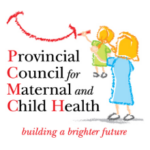What was originally developed as a Quality-Based Procedure (QBP) for Hyperbilirubinemia has been revised and updated into a best evidence Clinical Pathway for Hyperbilirubinemia in Term and Late Pre-Term Infants (> 35 weeks). The contents of this Clinical Pathway Handbook provide guidance to clinicians to ensure all newborns receive bilirubin screening between 24 and 72 hours of life (if not clinically indicated and performed earlier). The objectives of the Handbook also aim to:
- ensure infants receive systematic bilirubin monitoring as per the treatment graph and risk nomograms recommended by evidence-based guidelines;
- provide guidance around using healthcare resources responsibly through avoidance of unnecessary/excessive testing, timely discharge, appropriate outpatient follow-up and minimization of preventable readmission; and
- reduce the incidence of severe hyperbilirubinemia and acute bilirubin encephalopathy
Resources
Clinical Pathway Handbook for Hyperbilirubinemia in Term and Late Pre-Term Infants (> 35 weeks): A revised and updated version of the QBP for Hyperbilirubinemia.
Summary of Changes: A brief update of the changes made to the Clinical Pathway Handbook for Hyperbilirubinemia in Term and Late Pre-Term Infants (> 35 weeks).
Hyperbilirubinemia in Term and Late Pre-Term Infants (> 35 weeks) Clinical Pathway Toolkit: An abridged version of the Clinical Pathway Handbook focusing on the clinical pathway.
Looking for bilirubin (jaundice) screening resources and information for parents and families? Our "Newborn Jaundice and Your Baby" brochure (2017) can be found on the Standards of Postnatal Care page.
